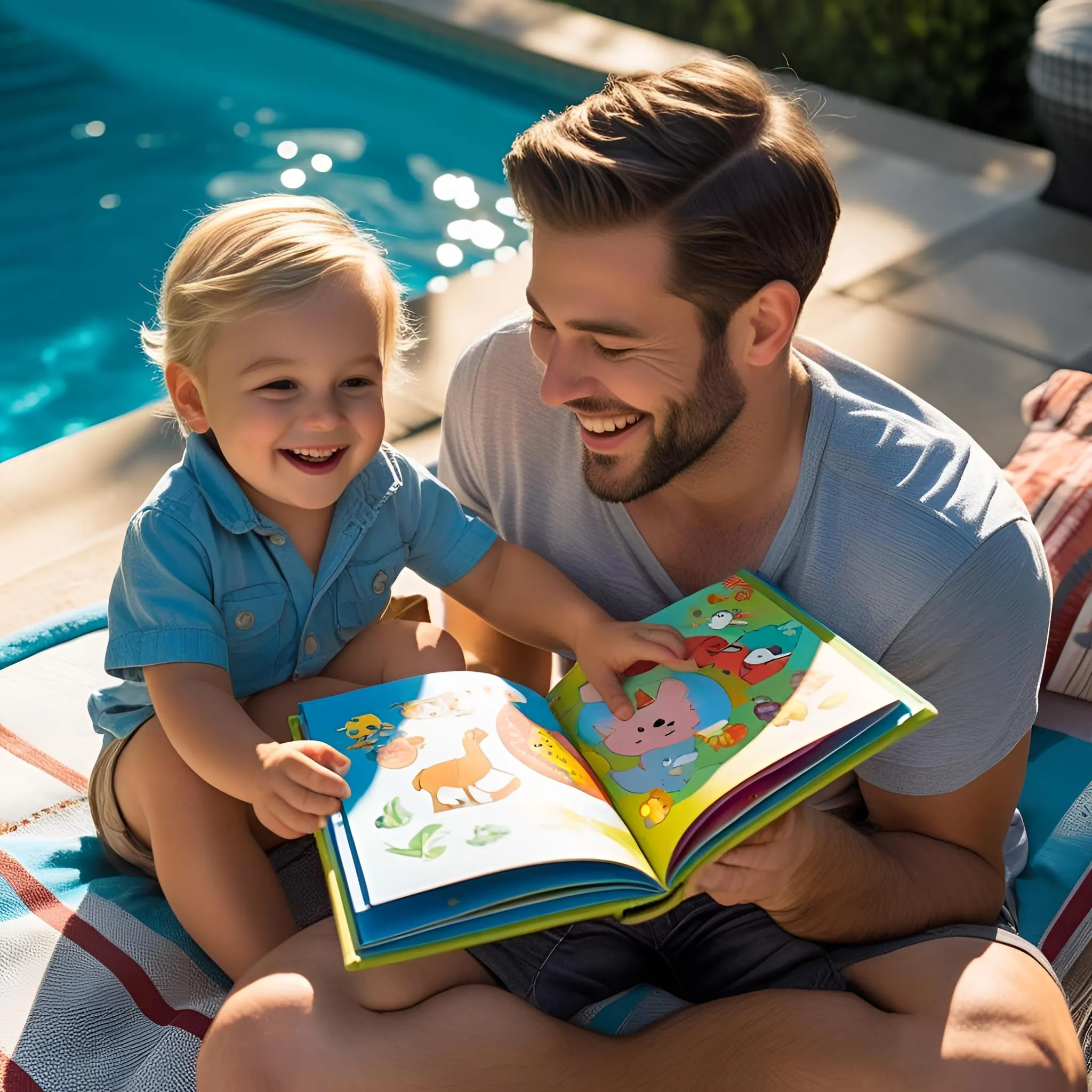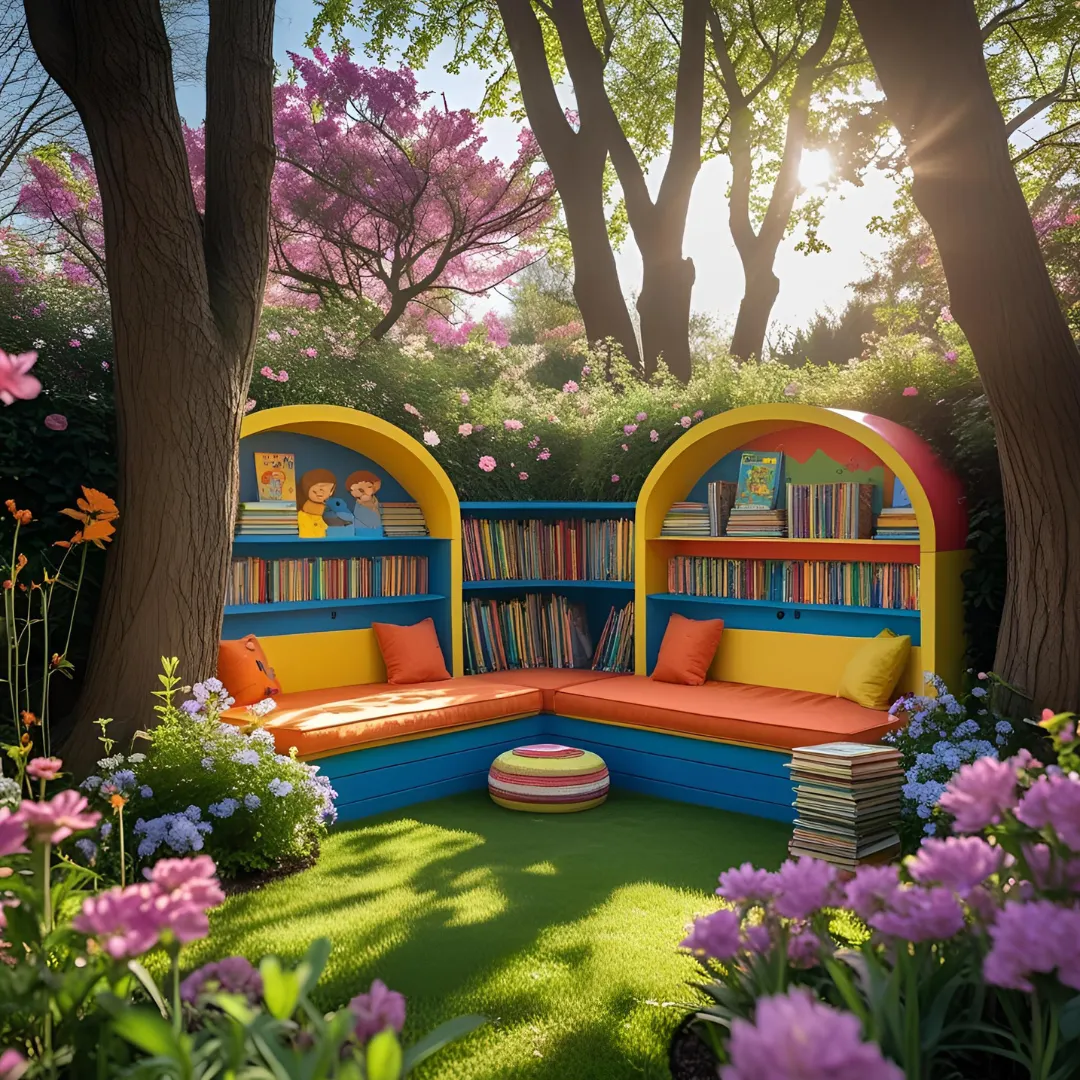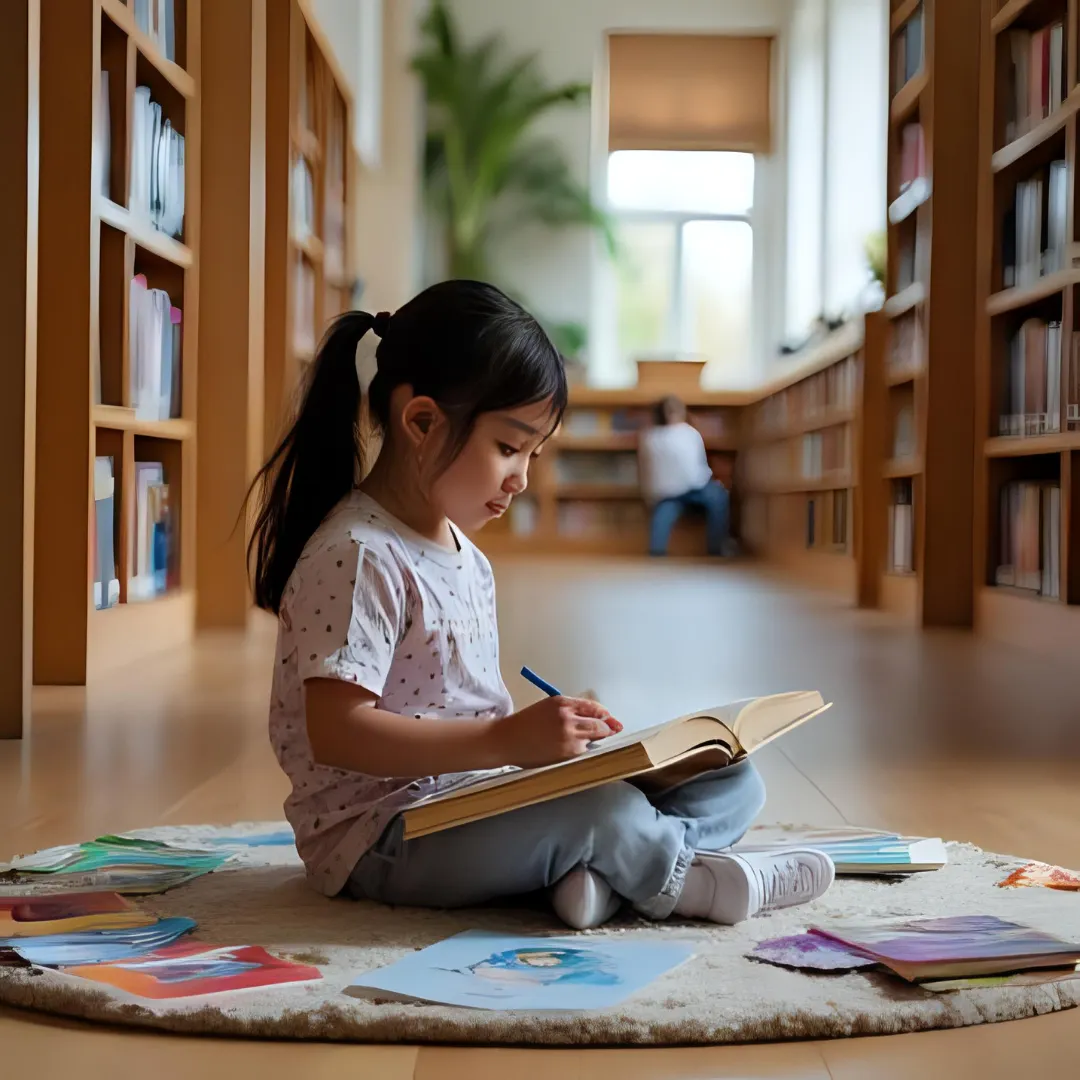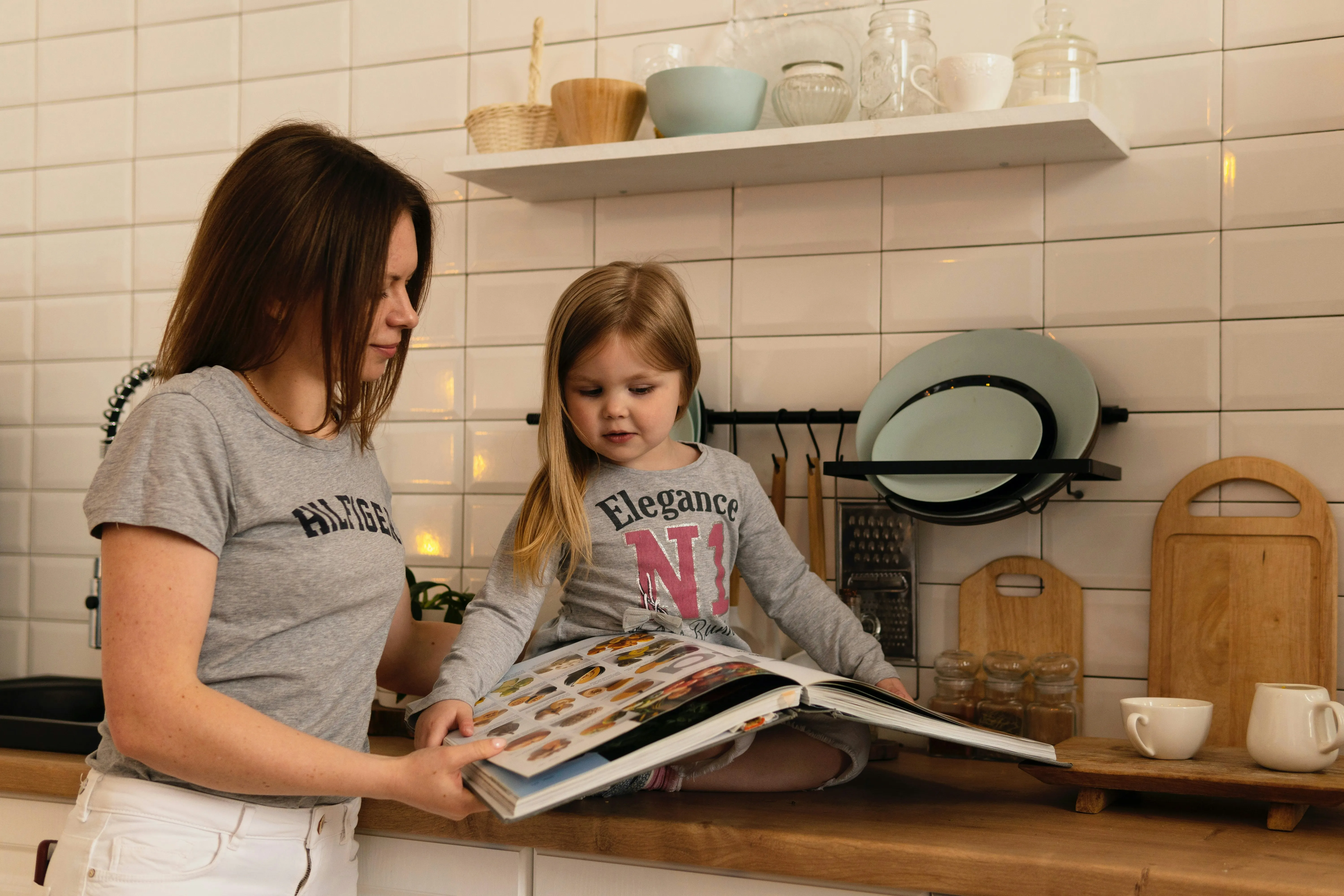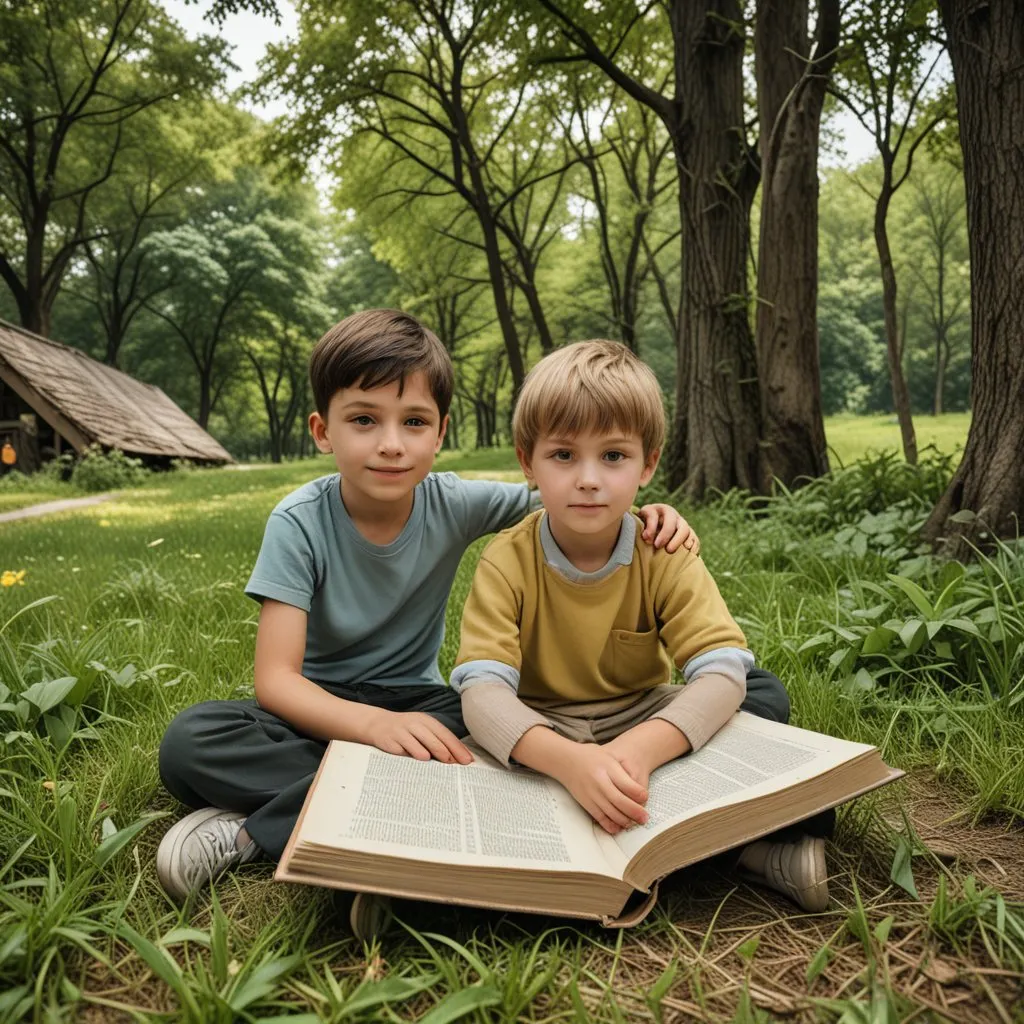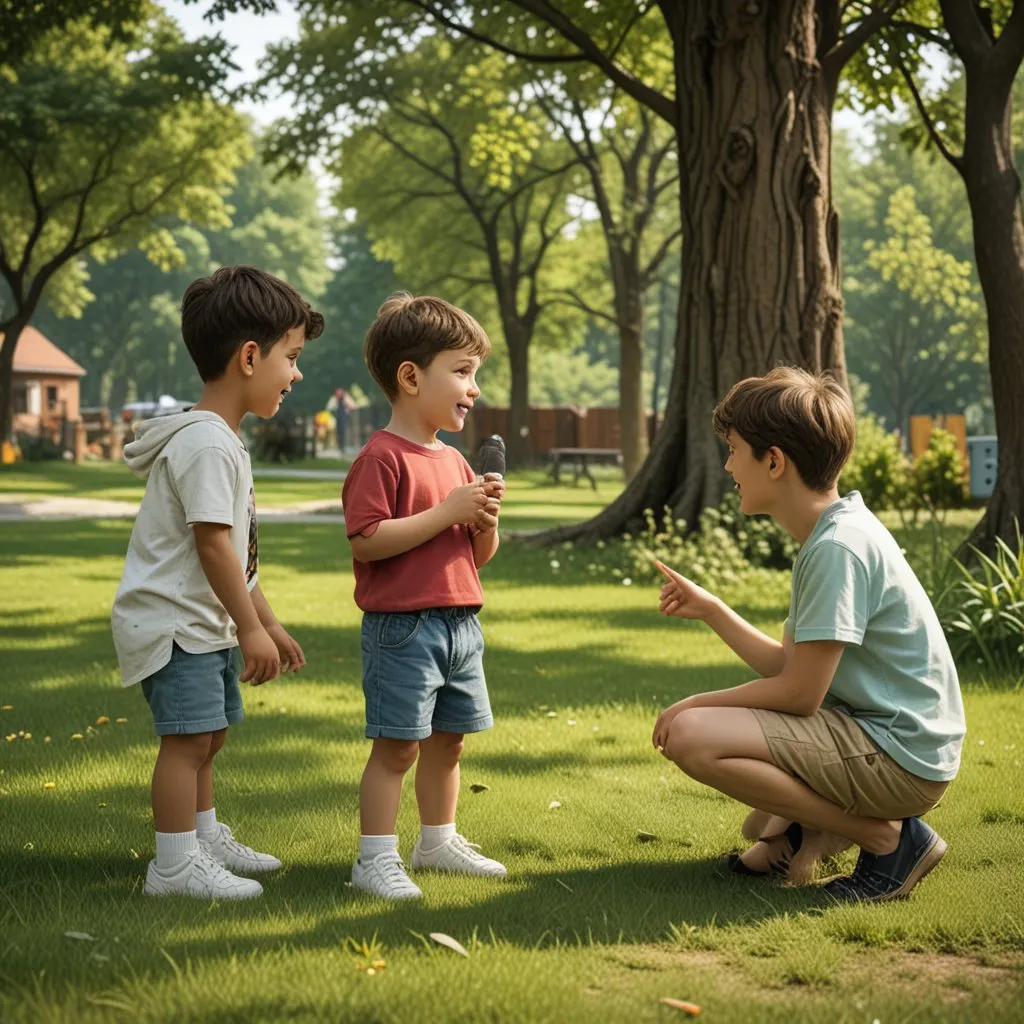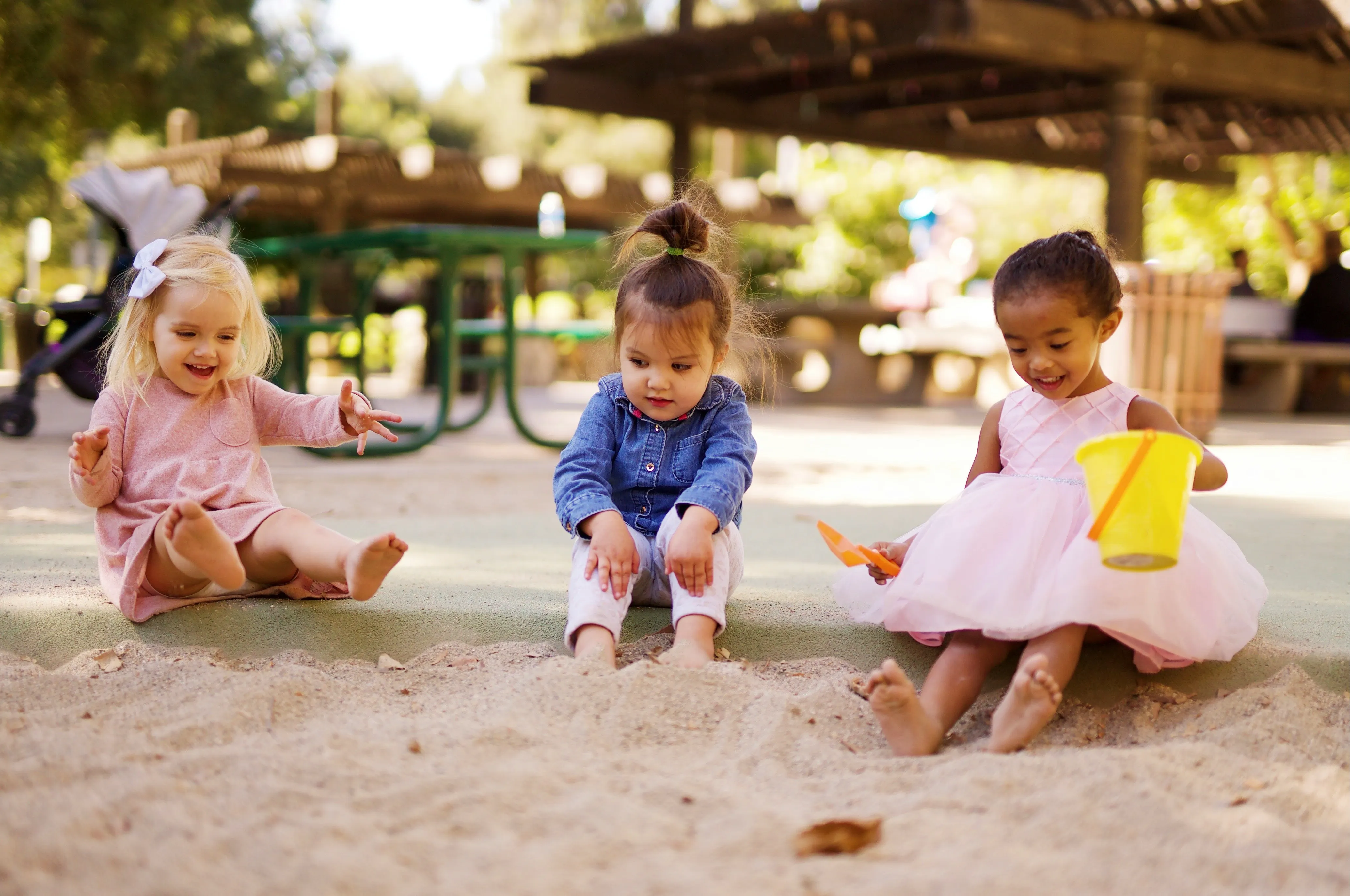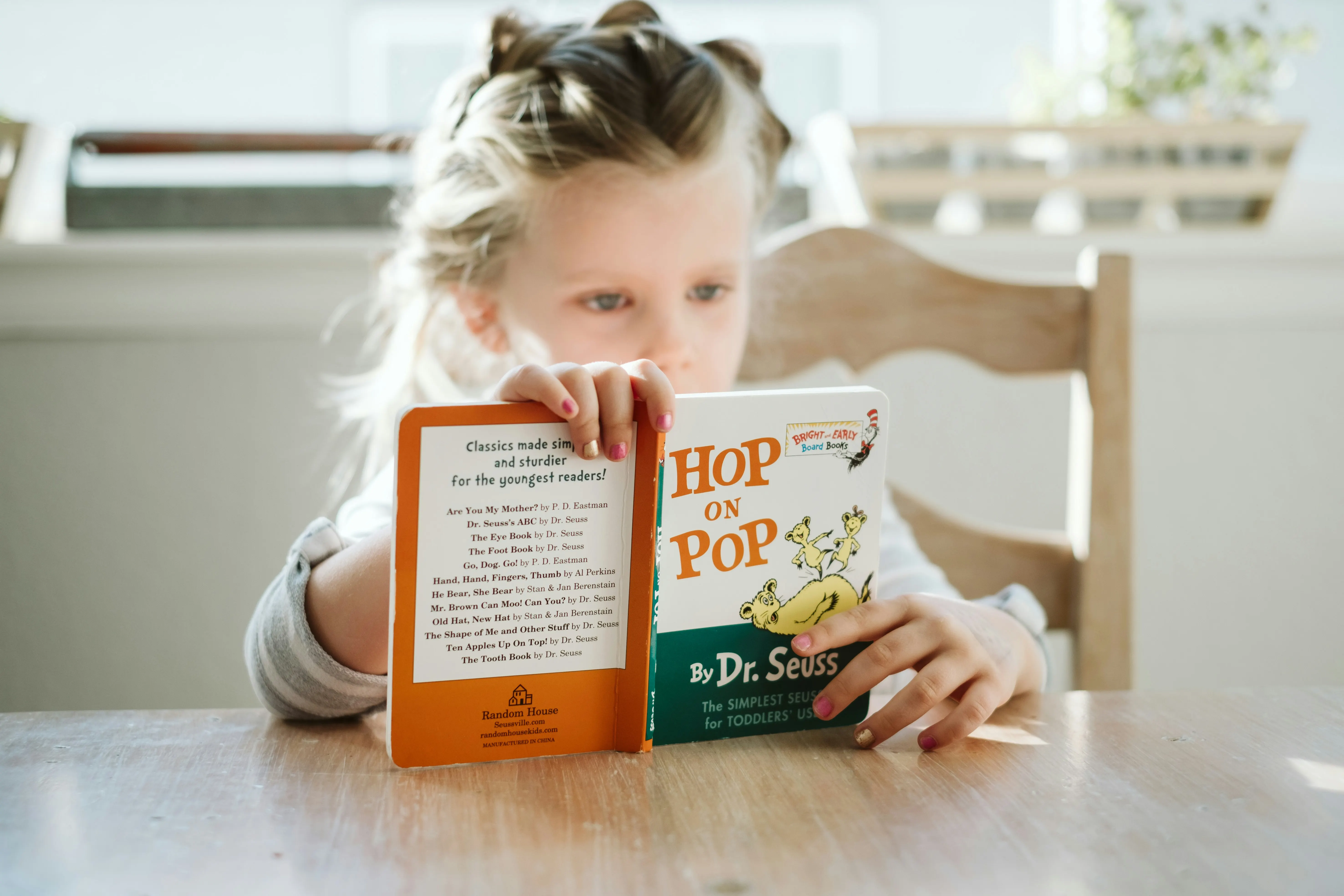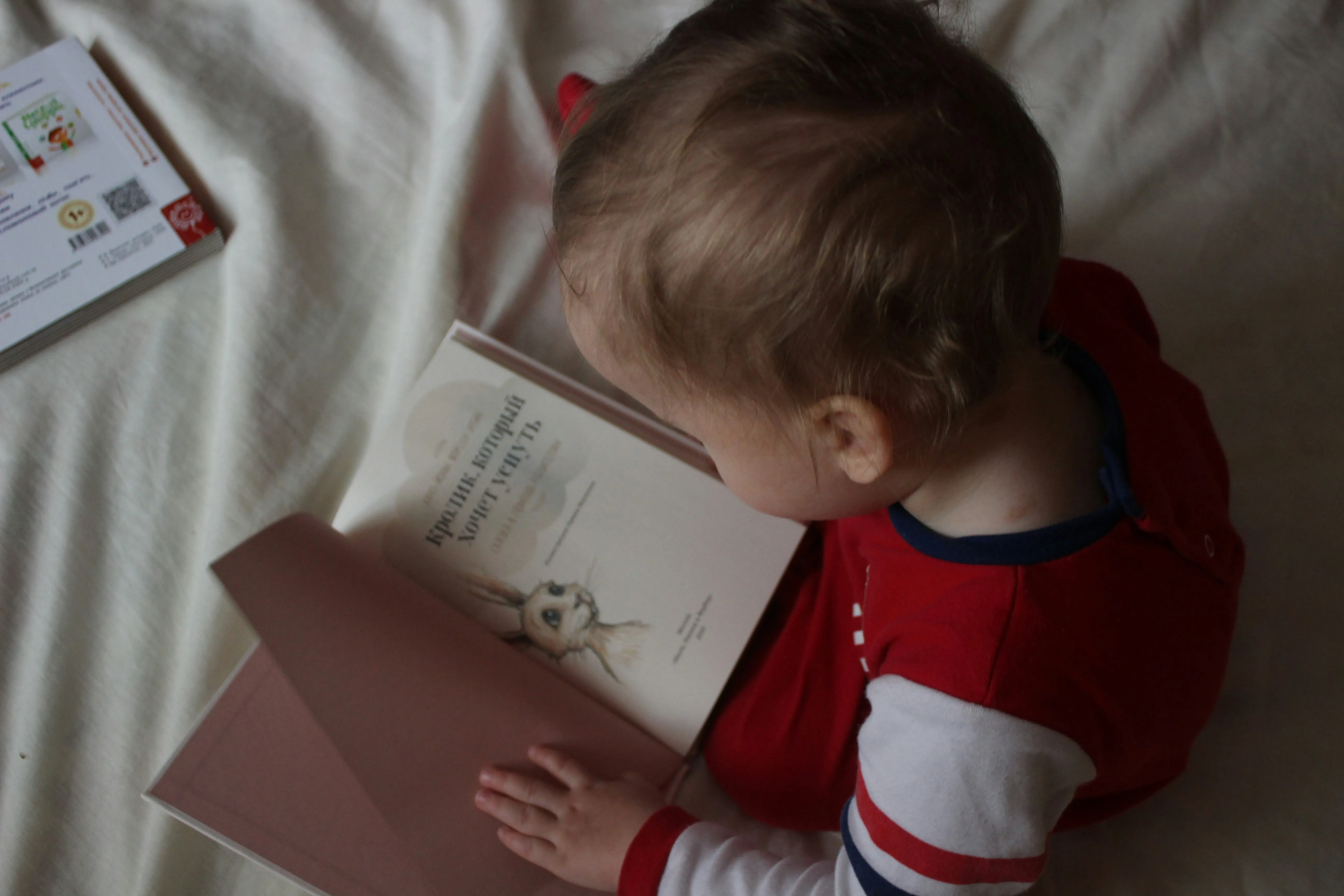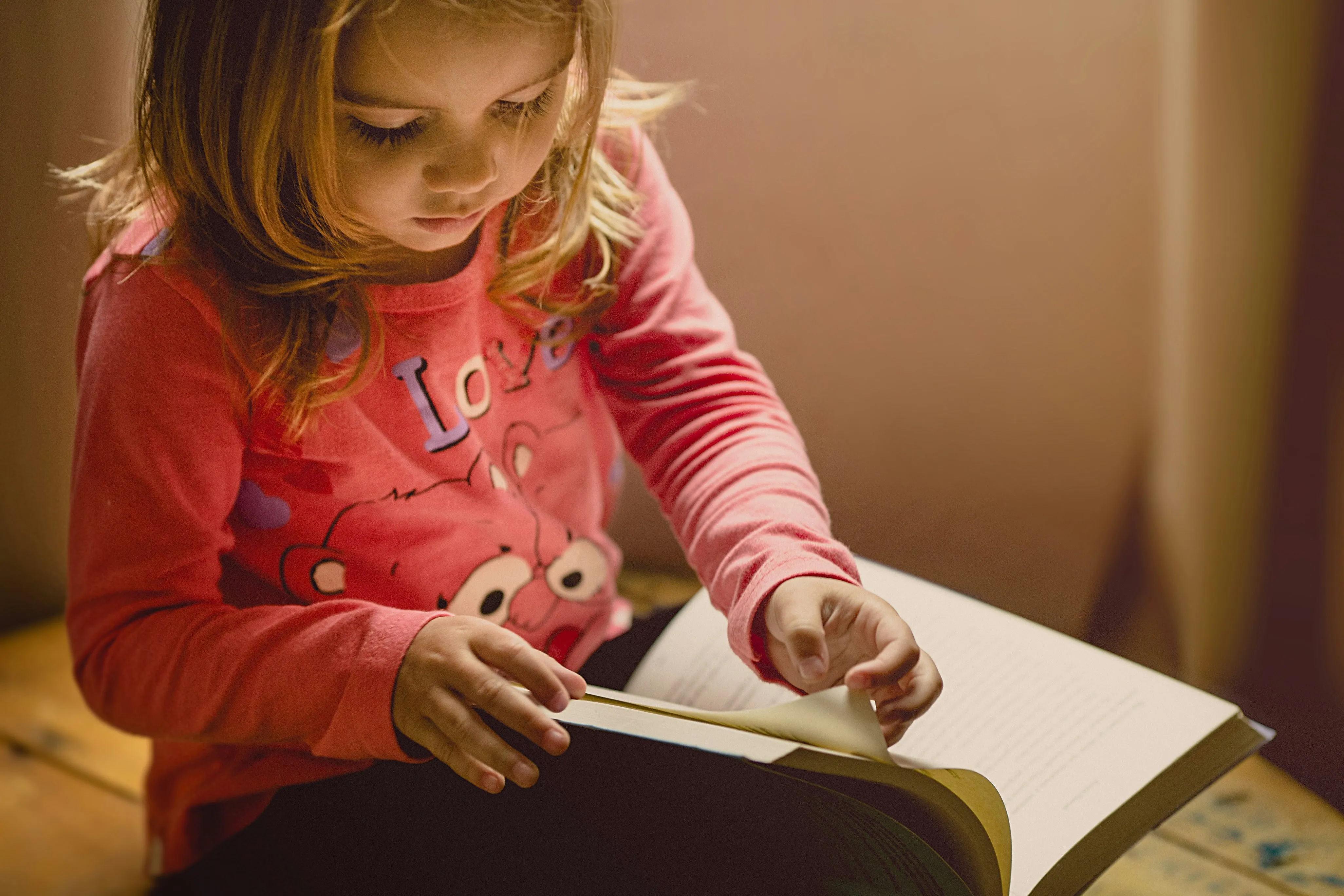Baby Talk 101: Teaching Your Baby to Talk Early

Teach Baby to Talk Early: Baby Talk 101 Guide
Key Highlights
- Babies start babbling and cooing as part of their baby talk, which is an important precursor to speech development.
- The first "baby talk" is nonverbal and happens soon after birth, with babies expressing a range of emotions and physical needs through cries, grimaces, and squirms.
- By 3 months, babies start cooing and listening to voices and sounds around them. They also begin to their native language and respond to their own names.
- At 6 months, babies start babbling with different sounds, such as "ba-ba" or "da-da." They also respond to their own names and use their tone of voice to express emotions.
- By 12-18 months, babies can say simple words like "mama" and "dada," understand basic words like "no," and use their hands to communicate.
Introduction
Teaching your baby to talk early is an exciting milestone in their development. From their first babbling and cooing sounds to their first real words, watching your baby's language skills develop is a fascinating journey. But when exactly do babies start talking, and how can you encourage their language development? In this blog, we will explore the early stages of baby talk and provide you with practical tips and strategies to help your baby learn to talk early.
Understanding Baby's First Sounds
Before babies learn to talk in a real language like English or Spanish, they engage in what is known as baby talk. Baby talk refers to the babbling and cooing sounds that babies make as they explore and play with sounds. These early sounds are an important foundation for speech development. They pave the way for babies to eventually say their first real words. By understanding and recognizing these early vocalizations, parents can support their baby's language development and help them progress from babbling to using real words.

Recognizing Early Vocalizations
Recognizing and understanding your baby's early vocalizations is key to supporting their language development. In the first few months of life, babies communicate through a range of vocalizations, such as cooing, gurgling, and babbling. These sounds are their way of experimenting with their vocal cords and exploring the different sounds they can make. By paying attention to these early vocalizations and responding to them, parents can encourage their baby's language skills and create a supportive environment for learning. As your baby's communication skills progress, you may notice them making new sounds and attempting to imitate the sounds they hear around them. This is an exciting sign that their language development is progressing.
The Journey from Babbling to Words
The journey from babbling to using real words is an important milestone in your baby's language development. As babies continue to explore and experiment with sounds, they gradually begin to make connections between the sounds they produce and the words they hear from their caregivers. Babbling typically starts around 6 months, with babies using different syllables and combinations of sounds. By around 12-18 months, babies start using simple words like "mama" and "dada" to refer to their parents. This transition from babbling to using real words is a sign that your baby's language skills are developing and that they are on their way to becoming proficient communicators.
The Power of Interaction in Language Development
The power of interaction cannot be underestimated when it comes to supporting your baby's language development. Babies learn language through their interactions with their caregivers and the environment around them. By engaging in daily conversations, listening, and responding to your baby's vocalizations, you create a rich language learning environment. Babies thrive on social interaction, and by providing them with opportunities to communicate, you are laying the foundation for their future language skills and fostering strong communication skills.
The Role of Listening and Responding
Listening and responding to your baby's vocalizations are fundamental in supporting their language development. When your baby coos or babbles, take the time to actively listen and respond. This shows your baby that their communication is valued and encourages them to continue exploring and experimenting with sounds. Responding can be as simple as smiling, making eye contact, or imitating the sounds your baby makes. By doing so, you are showing your baby that their attempts at communication are important and that their sounds have meaning.
Encouraging Vocal Play and Imitation
Encouraging vocal play and imitation is another effective way to support your baby's speech development. Vocal play involves making different sounds and vocalizations together with your baby. This can include making animal sounds, singing nursery rhymes, or playing with different pitches and tones. By engaging in vocal play, you are not only strengthening the bond between you and your baby, but also helping them develop their speech and language skills. Imitation is another important aspect of language development. When your baby hears you making sounds and imitates them, they are practicing the skills needed for speech production.
A Beginner's Guide to Teaching Your Baby to Talk Early

Teaching your baby to talk early is an exciting and rewarding journey. By creating a language-rich environment and engaging in activities that promote speech and language development, you can help your baby develop strong communication skills from an early age. In this beginner's guide, we will explore practical strategies and tips to support your baby's language development. From engaging in daily conversations to incorporating reading and singing into your daily routine, these activities will lay the foundation for your baby's language skills and set them on the path to becoming proficient communicators.
What You'll Need to Get Started
To get started on teaching your baby to talk early, you don't need any fancy equipment or expensive toys. All you need is a nurturing and supportive environment that encourages communication and language development. Here are a few things you'll need to create an ideal environment for your baby's language development:
- Engaging toys and books: Choose toys and books that promote interaction, communication, and language skills. Look for toys that make sounds, have colourful pictures, or encourage imitation.
- Daily conversations: Make it a habit to engage in daily conversations with your baby. Talk to them about your day, describe the things you see around you, and ask them questions.
- Reading materials: Incorporate reading into your daily routine. Choose age-appropriate books with simple words and colourful illustrations. Reading aloud to your baby is a great way to expose them to new words and concepts.
- Songs and music: Singing songs and playing music can captivate your baby's attention and help them develop their language skills. Choose nursery rhymes or simple songs with repetitive lyrics.
By providing your baby with these essential tools, you are setting the stage for their language development and giving them the best possible start in their journey to becoming proficient communicators.
Step 1: Engage in Daily Conversations
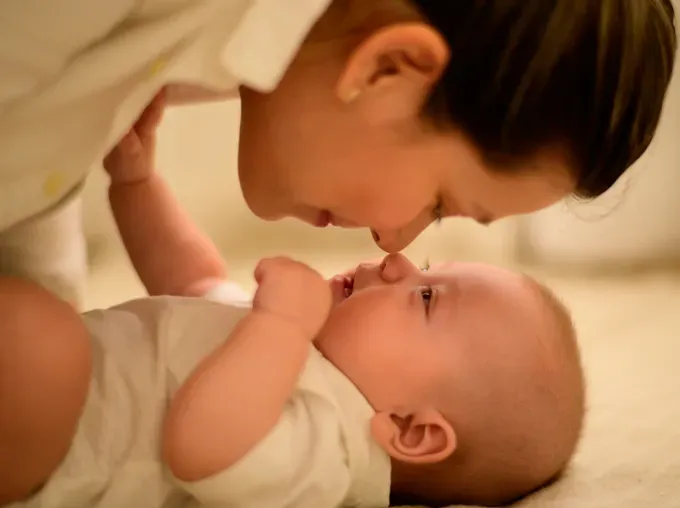
Engaging in daily conversations with your baby is a simple yet powerful way to support their language development. Talk to your baby about your day, describe the things you see around you, and ask them questions. Even if your baby can't respond with words yet, they are absorbing the language and learning to associate sounds with meaning. Use simple, clear language and vary your tone of voice to keep your baby engaged. This daily interaction not only helps develop their language skills but also strengthens the bond between you and your baby.
Step 2: Simplify Language Without Baby Talk

When teaching your baby to talk, it's important to simplify your language without resorting to baby talk. Baby talk, also known as parentese, involves using exaggerated tones and repetitive sounds, but research suggests that using real words and full sentences in a simple and clear manner is more beneficial for your baby's language development. By using simple words and clear pronunciation, you are helping your baby understand and imitate the sounds they hear. Avoid using complex language or long sentences that may overwhelm your baby. Instead, focus on using short, simple words and phrases to communicate with your baby.
Step 3: Expand Vocabulary Through Reading and Singing
Reading and singing are powerful tools for expanding your baby's vocabulary and language skills. Incorporate reading into your daily routine by choosing age-appropriate books with colorful pictures and simple words. Read aloud to your baby, pointing out the pictures and describing what you see. Singing songs and nursery rhymes can also captivate your baby's attention and expose them to new words and sounds. Choose songs with repetitive lyrics and encourage your baby to participate by clapping their hands or imitating the sounds they hear. Both reading and singing create a stimulating language environment and foster a love for language and communication.
Step 4: Use Repetition to Reinforce Learning
Repetition is a powerful tool for reinforcing learning and language development in babies. By repeating words, phrases, and nursery rhymes, you are helping your baby make connections between sounds and meaning. Repetition helps babies recognize patterns and build their vocabulary. Choose nursery rhymes or songs with repetitive lyrics and sing or recite them together with your baby. Encourage your baby to participate by clapping their hands, imitating the sounds, or pointing to pictures in a book. Repetition also helps babies develop memory skills and strengthens their language skills in a fun and engaging way.
Step 5: Create a Stimulating Language Environment
Creating a stimulating language environment is crucial for fostering your baby's language development. Surround your baby with a rich language environment by talking to them throughout the day and exposing them to a variety of sounds and words. Use descriptive language when describing objects or events, and encourage your baby to imitate the sounds they hear. Incorporate language-rich activities into playtime, such as talking about the toys your baby is playing with or describing the actions you are taking. Provide opportunities for your baby to interact with other children and adults who can model proper speech and language skills. A stimulating language environment is key to promoting your baby's language development and helping them become proficient communicators.
The Significance of Storytelling and Reading
Storytelling and reading play a significant role in your baby's language acquisition and vocabulary development. When you read aloud to your baby, you are exposing them to new words, sounds, and concepts. The rhythmic and melodic nature of storytelling and reading captures your baby's attention and stimulates their language centers in the brain. Through storytelling and reading, your baby not only learns new words but also develops a love for books and a curiosity for the world around them. It sets the foundation for their continued language development and fosters a lifelong love for reading.
Choosing the Right Books for Your Baby
Choosing the right books for your baby is essential for their language development and vocabulary expansion. Look for books with colorful illustrations, simple words, and interactive features like touch and feel textures. Board books are durable and easy for babies to hold and explore. Opt for books that introduce different themes, animals, objects, and everyday experiences. As your baby grows, choose books that cater to their interests and curiosity. Reading books that align with your baby's language development and age-appropriate vocabulary helps them make connections between words and the world around them, fostering their language skills and love for reading.
Tips for Interactive Reading Sessions
Interactive reading sessions are a great way to engage your baby in language development and promote their communication skills. Here are some tips for making your reading sessions interactive and beneficial for your baby:
- Use different voices and tones to bring the characters in the book to life.
- Point to the pictures and name the objects to help your baby associate words with visuals.
- Encourage your baby to turn the pages, touch and feel different textures, and actively participate in the reading experience.
- Ask open-ended questions about the story or the characters to stimulate your baby's language skills and encourage them to think and respond.
- Repeat key phrases or words throughout the story to reinforce learning and vocabulary development.
By making reading sessions interactive and engaging, you create a positive and stimulating language environment for your baby, fostering their communication and language skills.
Utilizing Music and Songs for Language Acquisition
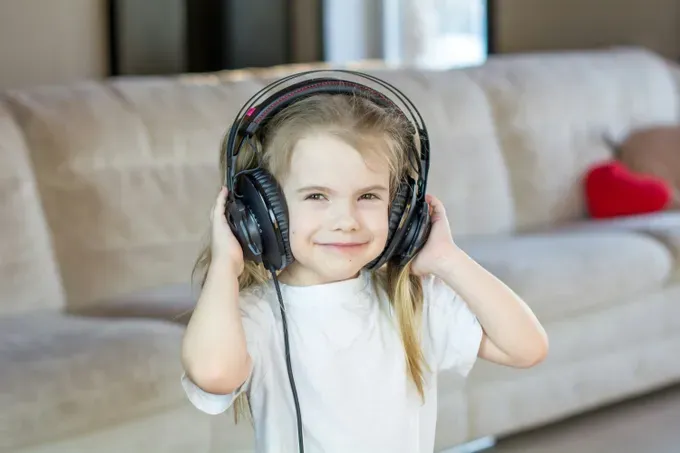
Music and songs can be powerful tools for supporting your baby's language acquisition. Babies are naturally drawn to rhythmic and melodic sounds, and music engages multiple areas of their brain. Singing songs and nursery rhymes exposes your baby to different sounds, words, and patterns of speech. It helps them develop their listening skills, memory, and language recognition. Incorporate music and songs into your daily routine, sing lullabies at bedtime, and play soothing music during playtime to create a calming and language-rich environment for your baby.
The Benefits of Singing to Your Baby
Singing to your baby offers numerous benefits for their language skills and overall development. Here are some of the key benefits of singing to your baby:
- Language development: Singing exposes your baby to the rhythm, melody, and patterns of speech, helping them develop their listening and language skills.
- Vocabulary expansion: Singing nursery rhymes and songs introduces your baby to a wide range of words and concepts, expanding their vocabulary.
- Bonding and emotional connection: Singing to your baby creates a special bond and emotional connection between you and your baby, promoting a sense of security and comfort.
- Soothing and calming: Singing lullabies can help calm and soothe your baby, preparing them for sleep and reducing stress.
- Memory and cognitive development: Singing helps stimulate your baby's memory and cognitive development, as they learn to remember and anticipate the lyrics and melodies.
By incorporating singing into your daily routine, you are providing a nurturing and language-rich environment that supports your baby's language development and overall well-being.
Simple Songs to Start With
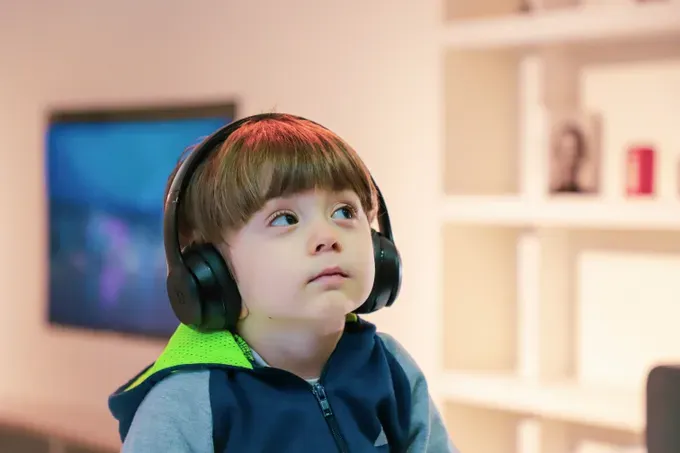
When it comes to singing to your baby, simple songs with repetitive lyrics and catchy melodies are best. Here are a few simple songs to start with:
- "Twinkle, Twinkle, Little Star": This classic nursery rhyme is easy to sing and has a soothing melody that babies love. It also introduces the concept of stars, which can spark your baby's curiosity.
- "Row, Row, Row Your Boat": This song is great for interactive play, as you can rock your baby back and forth as you sing. It also introduces the concept of rowing and water.
- "The Wheels on the Bus": This fun and interactive song introduces different sounds and actions, like the sound of the bus and the movement of wheels.
- "If You're Happy and You Know It": This song encourages your baby to clap their hands and stomp their feet, promoting physical coordination and language skills.
By singing these simple songs to your baby, you are not only providing them with entertainment but also supporting their language development and cognitive skills.
Conclusion
Teaching your baby to talk early is a rewarding journey that starts with recognizing their early vocalizations and nurturing language development through interactive engagement. By simplifying language, expanding vocabulary, and creating a stimulating environment, you can empower your little one's communication skills. Incorporating storytelling, reading, music, and songs further enhances their linguistic abilities. Remember, every baby is unique, so patience and consistency are key in this exciting process. If you have any questions or need guidance on fostering your baby's language development, don't hesitate to get in touch with us for personalized support. Start this wonderful journey of language discovery with your baby today!
Frequently Asked Questions
How can I help my baby to learn to talk?
To help your baby learn to talk, you can:
- Engage in daily conversations with your baby, talking to them about your day and asking them questions.
- Encourage vocal play and imitation by making different sounds and imitating the sounds your baby makes.
- Read to your baby and expose them to a variety of words and concepts.
- Create a language-rich environment by talking to and interacting with your baby regularly.
- Introduce new words and expand your baby's vocabulary through songs, nursery rhymes, and interactive play.
When should I start teaching my baby to talk?

There's no specific age to start teaching your baby to talk, as every baby develops at their own pace. However, you can start fostering their language development from birth by engaging in daily conversations, reading to them, and exposing them to language-rich environments. By around 6 months, babies begin babbling and making different sounds, which is a sign that they are ready to start learning language skills.
What role does reading aloud play in helping babies learn to talk early?
Reading aloud plays a crucial role in helping babies learn to talk early. It exposes them to a wide range of words, helps build their vocabulary, and enhances their language skills. Reading aloud also promotes cognitive development, imagination, and a love for books from an early age.
Reading aloud to babies plays a crucial role in helping them develop early language and communication skills, setting the foundation for learning to talk.
Here are some key ways reading aloud supports babies' speech and language development:
Exposes Babies to More Words and Language
Babies who are read to from birth are exposed to significantly more words than those who are not read to regularly. A study found that kids who are read to from birth to age 5 hear around 1.4 million more words than those who are not[1]. This rich language exposure helps build their vocabulary and understanding of how language works.
Teaches Speech Sounds and Patterns
When reading aloud, adults naturally use exaggerated speech patterns, different tones, and vary their pitch. This draws babies' attention to the sounds and rhythms of speech[2]. Hearing these speech patterns repeatedly helps babies become attuned to the building blocks of language they will eventually use to form words[3].
Promotes Brain Development
The interactive nature of reading, with the back-and-forth between parent and child, stimulates brain activity and helps strengthen neural connections related to language and literacy[1][2]. This stimulation is critical during the rapid brain growth that occurs in the first years of life.
Builds Early Communication Skills
Even before babies can speak, reading together allows them to practice turn-taking and engage in early "conversations" through babbling, gestures, and facial expressions[3]. This back-and-forth interaction is a precursor to learning to communicate with words.
Develops Phonological Awareness
As babies hear words and language patterns repeatedly through books, they begin to develop phonological awareness - the ability to recognize and work with the sounds in spoken language[2]. This phonological skill is a reliable predictor of later reading ability.
In essence, reading aloud exposes babies to diverse words, language patterns, and interactive experiences that lay the groundwork for their speech development from a very early age[1][2][3][4]. The more babies are read to, the better prepared they will be to start forming their first words and sentences.
Citations:
[1] https://www.verywellfamily.com/why-reading-to-babies-is-important-5189827
[2] https://www.bookbaskets.com.au/blog/why-reading-to-babies-really-matters/
[3] https://www.webmd.com/parenting/baby/baby-talk
[4] https://www.firstthingsfirst.org/resources/language-and-literacy/
[5] https://raisingchildren.net.au/babies/play-learning/literacy-reading-stories/reading-from-birth
[6] https://www.all4kids.org/news/blog/the-importance-of-reading-to-your-children/
[7] https://www.expressable.com/learning-center/babies-and-toddlers/new-research-reading-to-your-baby-may-help-grow-their-language
[8] https://terracentre.ca/blog/benefits-of-reading-to-your-baby-and-young-children/
[9] https://health.clevelandclinic.org/the-benefits-of-reading-to-babies
[10] https://www.ncbi.nlm.nih.gov/pmc/articles/PMC5510534/
[11] https://eclkc.ohs.acf.hhs.gov/publication/read-it-again-benefits-reading-young-children
[12] https://raisingchildren.net.au/babies/play-learning/literacy-reading-stories/reading-storytelling
[13] https://caringforkids.cps.ca/handouts/behavior-and-development/read_speak_sing_to_your_baby
[14] https://melbournechildpsychology.com.au/blog/the-many-benefits-of-reading-aloud-to-your-kids/
[15] https://www.naeyc.org/resources/pubs/yc/fall2021/reading-aloud-infants-toddlers
[16] https://www.herokindercentra.nl/en/blogs/reading-aloud-helps-your-child-grow/
[17] https://calgaryschild.com/parenting/ages0-5/3048-the-benefits-of-reading-to-your-baby
[18] https://www.researchgate.net/publication/332967998_Reading_to_babies_Exploring_the_beginnings_of_literacy
THINGS NEW PARENTS WONDER

What if my baby isn’t talking as expected?
If your baby isn't talking as expected, it's important to consult with a healthcare professional. A speech delay or language delay may require further assessment by a health visitor, pediatrician, or language therapist to identify any underlying issues and provide appropriate intervention or therapy to support your baby's speech and language development.
Are there any extra activities I can do to support my child’s speech development?
There are several extra activities you can do to support your child's speech development, such as:
- Engaging in interactive play to encourage communication and language skills.
- Providing opportunities for your child to interact with other children and adults.
- Incorporating language-rich activities into playtime, such as storytelling, singing, and playing with toys that promote language skills.
- Encouraging conversation and communication during daily routines and activities.
- Reading aloud and exposing your child to a variety of books and vocabulary.
By incorporating these activities into your child's daily routine, you can support their speech development and promote strong communication skills.



